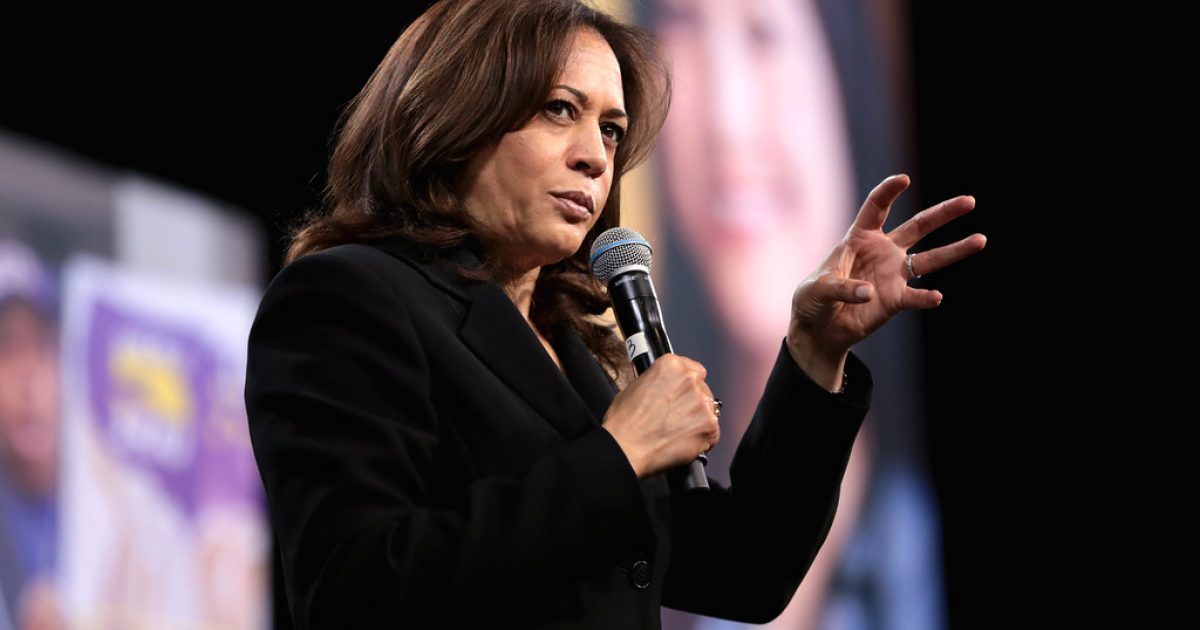
Sen. Kamala Harris (D–CA) attempted to justify her record on criminal justice during Thursday’s Democratic Presidential debate, pointing to what she referred to as “distortions” when faced with tough questioning.
ABC News reporter and debate moderator Linsey Davis noted that Harris’ proposed criminal justice plan as a presidential candidate, which includes leniency toward non-violent offenses, flies in the face of her work as a prosecutor and attorney general.
“It does contradict some of your prior positions. Among them, you used to oppose the legalization of marijuana, now you don’t,” Davis said.
“You used to oppose outside investigations of police shootings, now you don’t. You said that you’ve changed on these and other things because you were, quote, ‘swimming against the current and thankfully, the currents have changed.’ But when you had the power, why didn’t you try to affect change then?” she asked Harris.
“There have been many distortions of my record,” Harris chimed back. “Let me be very clear. I made the decision to become a prosecutor for two reasons. One, I wanted to protect people and keep them safe. And second, I was born knowing how this criminal justice system in America has worked, in a way that has been informed by racial bias, and I can tell you extensively about the experiences I and my family have personally had.”
“I made the decision that if I was going to have the ability to reform the system I’d do it from the inside,” Harris added.
However, Harris’ revisionism does not wipe away her decades-long record in government. As we have reported at Liberty Conservative News, she frequently touted her cruelty toward criminals when she felt it would benefit her political stardom.
She wrote about her record in her 2009 book, “Smart on Crime.” This was after the Obama election and the accompanying sea change regarding marijuana, victimless crimes and the drug war. She still remained in full cop mode, bragging extensively about her career, and making it clear that harsh criminal justice penalties were her modus operandi.
“Remember, “non-violent” does not mean “unimportant.” It’s important to fight all crime. Drug crimes in particular exact a terrible toll and rob people young and old of hope,” Harris wrote in her book.
“And remember that many of these offenders are small players in the underground business of drug sales and trafficking, and therefore are closely linked with gangs, violence, and gun crimes,” she continued.
Harris made it clear that all non-violent crimes must be punished to protect the rule of law, a position she has reversed on completely in recent years.
“While we need to arrest and make all offenders accountable for their crimes, we are finding ways to transform the status quo approach that results in offense-arrest-jail-offense-arrest-jail—a pattern I sometimes call “synchronized drowning”—into a new path of accountability and reintegration that builds stronger, safer communities,” Harris wrote.
She wrote about police in a flattering manner that would deeply offend a modern “Black Lives Matter” activist.
“There is a widely held notion that poor communities, particularly poor African-American and Latino communities, consider law enforcement the enemy and that they do not want police officers in their neighborhoods,” she wrote. “In fact, the opposite is true. Both my experience and scientific surveys reflect this fact again and again. … I can state categorically that economically poor people want and support law enforcement.”
She even bragged about how many non-violent drug offenders she put away while serving as attorney general in San Francisco.
“We are sending three times as many offenders to state prison than we were in 2001, three years before I took office,” Harris wrote. “We also increased conviction rates for drug sellers.”
Harris’ record puts her out of the mainstream in the Democratic Party fold nowadays, and radicalized constituents are not buying her line about “distortions.” She remains in a distant 4th place among a crowded field, roughly 20 points behind the front-runner former Vice President Joe Biden in the latest polls.



